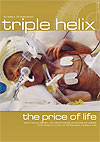According to a recent report, (1) there is a global shortage of midwives that is having a significant negative impact on maternal and child health, setting back progress towards Millennium Development Goals 4 and 5. (2) In most parts of hte developing world, as few as 6% of women have access to a midwife or skilled birth attendant, let alone an obstetrician or ospital care. This lack of access to primary, secondary, antenatal and postnatal care costs about a million lives a year - mostly in infant deaths, although 350,000 mothers still lose their lives during pregnancy, child-birth and the immediate postnatal period.
As CMF highlighted in our submission to DFID's consultation on maternal health strategy, (3) one of the key needs is the training, professional development and funding to employ health professionals, buil dgood multidisciplinary teams and focus on the integration of community and secondary care services so that the delays in getting women with complcated labour to acute medical services are overcome. Single, 'magic bullet' solutions will not work here, but ensuring there are enough trained midwives is a key plank in any successful strategy.
Ironically, we face a shortfall of skilled midwives here in the UK - leading ot overstretched labour wards, stressed and unmotivated staff, anda question mark about the impac this will have on our own maternal and neonatal health record. (4) As we seek to address the maternal health needs of the world's poor, we also need to think about how we are providing for the care of mothers and children in our own nation.
Care for the vulnerable is a central duty for God's people - this is seen throughout scripture - and without a doubt, mothers and children are an increasingly vulnerable group who need our care, support and advocacy. (5)
































